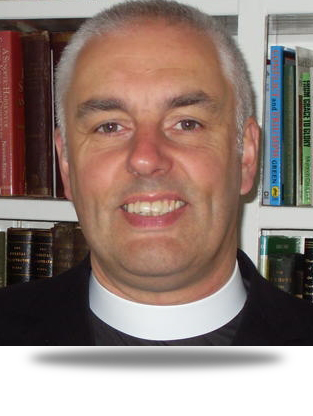The Antichrist: the Present & Future Threat
By Rev. David Blunt, Free Church of Scotland (Continuing) – 29th October, 2010.
The Rev. David Blunt of the Free Church of Scotland (Continuing) on the Isle of North Uist spoke on the subject of “The Antichrist: The Present and Future Threat” at the 2010 Christian Watch Annual Meeting held on 29th October in Luton.
The Rev. Blunt opened his address by highlighting how everyone seems to have heard of the Antichrist, but few seem to really understand the term and in particular who and what Antichrist is. He also warned against the two extremes when considering the Antichrist, of 1) being “over literal” in interpreting the scriptures and 2) “being unduly shy in our approach” to this important matter thinking these are issues too difficult to comprehend. He continued that it was his conviction that the Papacy was the very Antichrist revealed in God’s word and then clearly laid out the development of the Papacy through history until the present day.
Rev. Blunt continued by identifying the new strategies of the Papacy now it can no longer impose its views outside its own “Church” as it did in times past. The first strategy being its apparent reform, the second its hypocritical demands for the very minority rights it so often denies others and, finally, in its ecumenical endeavours to create a “unified” church under the headship of the Pope.
Further Rev. Blunt showed how these new tactics of guile by the Papacy have successfully deceived many including the Monarchy and successive Governments to think that Rome has somehow changed, and is no longer the murderous persecutor of the dark ages. Indeed so successful have these new tactics been that even some professing Christians and “evangelicals” no longer see the Church of Rome as an apostate church but rather have the deeply misguided view that they are “fellow brothers in Christ” and we should join together to fight the forces of secularisation. Rev. Blunt then gave four causes for this worrying shift in attitude.
This excellent address was concluded with an exhortation for true Christians to play their part in the Papacy’s destruction by faithfully contending for, and preaching, the Biblical gospel and, finally, an encouragement to take heart because the final destruction of the Papacy was inevitable, at the Lord’s return.
 Rev. David Blunt was born in Essex in 1958 and brought up in Hampshire. He was converted to Christ in 1983 while engaged in scientific research in Scotland and studied at the Free Church College in Edinburgh.
Rev. David Blunt was born in Essex in 1958 and brought up in Hampshire. He was converted to Christ in 1983 while engaged in scientific research in Scotland and studied at the Free Church College in Edinburgh.
Following ordination to the ministry in the Free Church of Scotland (Continuing) in 2000 he served as an Evangelist/Church Planter in Aberdeen.
In 2007 he was inducted as Minister of the North Uist & Grimsay Congregation in the Western Isles. Rev. Blunt is a founding member of the James Begg Society and the author of “Which Bible Version?” published by the Trinitarian Bible Society. He is married to Sybil.
The Antichrist: The Present & Future Threat
The work of the Lord
Speaker:Rev. David Blunt
Free Church of Scotland (Continuing)
To download Audio Sermon right click and choose save
